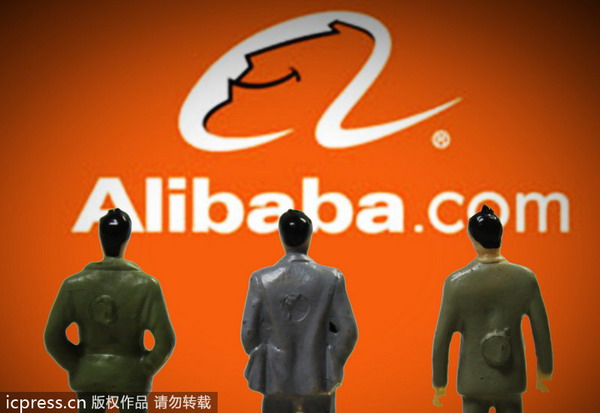BEIJING - "If the banks won't change, we will make them change," said charismatic e-billionaire Jack Ma as he led his young troops armed with Big Data to challenge the State-backed dinosaurs.
Having revolutionized China's shopping habits, Ma's Internet giant Alibaba is now making forays into the finance industry that he believes holds vast potential, with so many customers under-served and unhappy.
|
 In June this year, Alipay, the online payment arm of Alibaba, launched "Yu'E Bao (Leftover Treasure)" a service that gives Alipay's millions of users the option of directly channeling spare money in their accounts into high interest funds. [Photo / icpress.cn] |
In June this year, Alipay, the online payment arm of Alibaba, launched "Yu'E Bao (Leftover Treasure)" a service that gives Alipay's millions of users the option of directly channeling spare money in their accounts into high interest funds.
With a minimum threshold at just one yuan (most wealth management products by banks demand at least 50,000 yuan) and returns far above bank deposit rates, Yu'E Bao was an instant hit, especially among young people whose driblet savings are largely ignored by banks.
Just five months later, the number of "Leftover Treasure Seekers" was nearly 30 million, with their deposits amounting to 100 billion yuan.
The success has meant more Internet bees buzzing around the honeypot. In October, China's leading search engine Baidu announced its first online wealth management product "Baifa".
Other cyber-finance products are blooming across the country. Peer-to-Peer (P2P) lending, the practice of private individuals lending and borrowing money through websites, has grown fast and threaten to grab a share of traditional banks' hefty profits.
In a policy report released in August, the People's Bank of China, China's central bank, made its first acknowledgment of booming Internet finance saying the services are filling an innovation gap left by traditional financial institutions, and should be encouraged.
Globally, the encounter between the Internet and finance has seldom been as dramatic as that which is unfolding in China. In countries such as the United States, market-sensitive financial institutions quickly adapted to new technologies and trends, leaving little room for Internet firms to make inroads.
|
|
|
|
|
|
|
|
